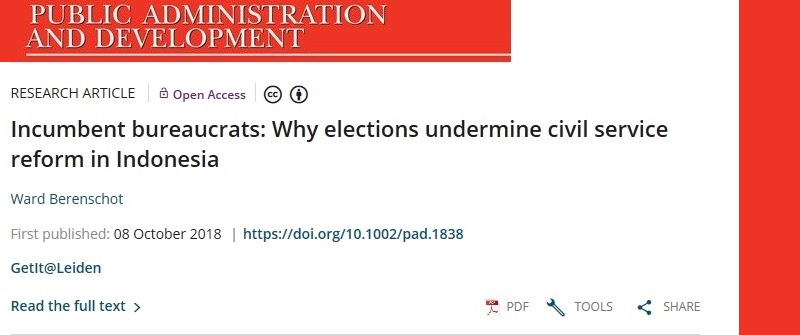
16 Oct New publication: Incumbent bureaucrats: Why elections undermine civil service reform in Indonesia
Full open acces: ‘Incumbent bureaucrats: Why elections undermine civil service reform in Indonesia’, by Ward Berenschot in Public Administration and Development.
In this article KITLV-researcher Ward Berenschot develops an explanation for why democratisation processes sometimes fail to foster effective civil service reform. Using ethnographic fieldwork on the evolving relationship between civil servants and politicians in Lampung, a rural backwater in the southern tip in Sumatra, he attributes the ineffectiveness of bureaucratic reform measures in Indonesia to the way in which elections trigger competition over control over state resources. Berenschot argues that a merit‐based bureaucracy is particularly difficult to institute when a local bureaucracy enjoys strong discretionary control over the distribution of state resources. During Suharto’s authoritarian regime, this control rested largely in the hands of bureaucrats. This authoritarian legacy generates strong incentives for politicians to prefer loyal bureaucrats over capable ones. Politicians need to use bureaucratic appointments as a means to obtain campaign support and to develop control over state resources. In developing these arguments, this paper offers an approach to incorporate informal and clientelistic dimensions of politics more explicitly into analyses of processes of bureaucratic reform.




No Comments